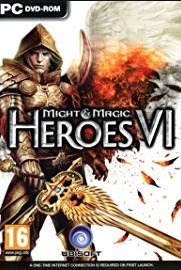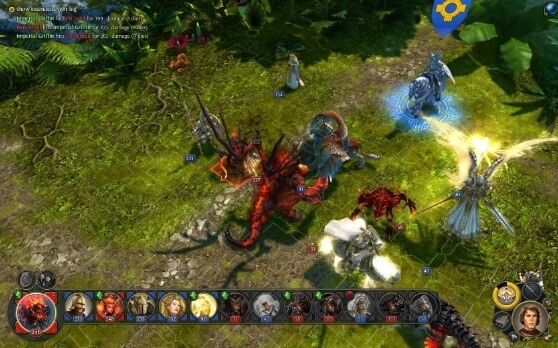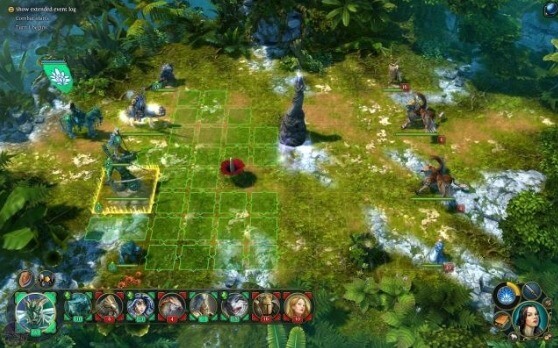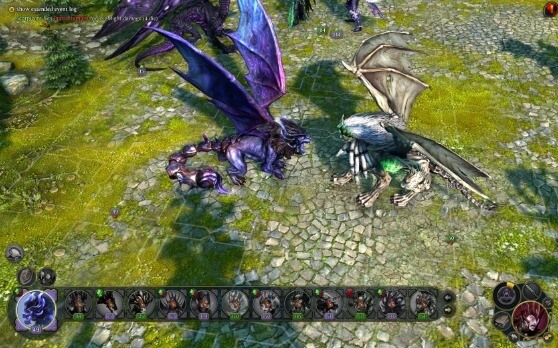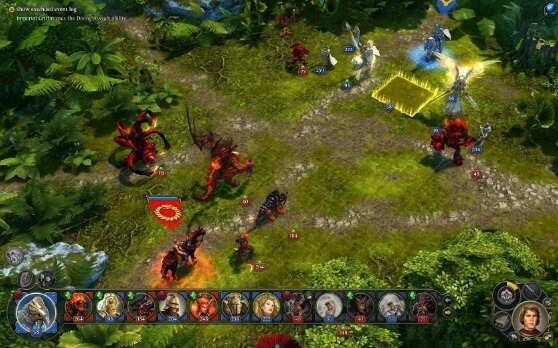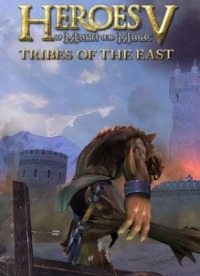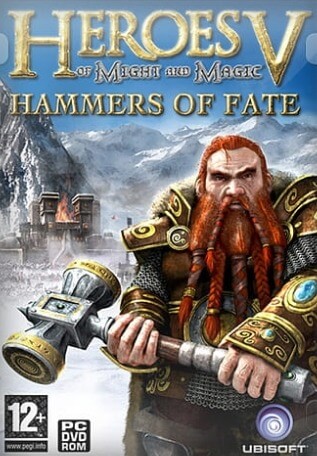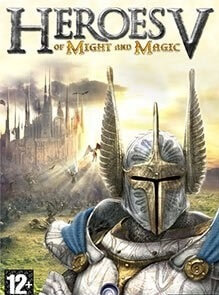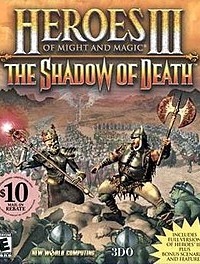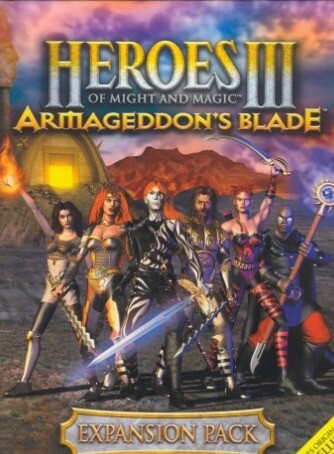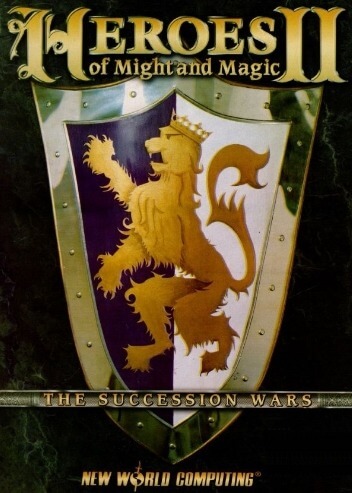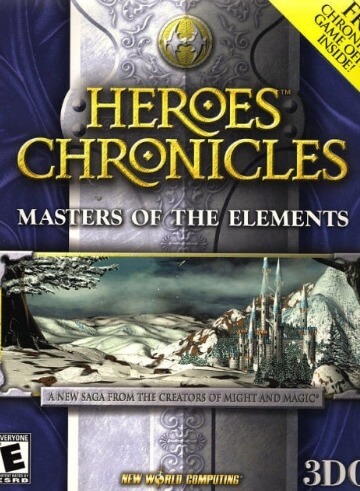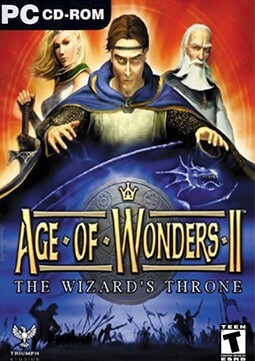The gameplay of Heroes VI mainly follows in the same vein taken by its predecessor, i.e. hero-based faction-affiliated development. As such, every faction has two types of heroes, every unit has an upgrade and turns affect combats as they affect the general gameplay. There are substantial changes, however, and these include the replacement of magic guilds by the creation of spells/abilities wheel, in addition to the skills wheel. New affiliations called "Tears" or "Blood" appear and play a major role in hero development, notably influencing their skills. For instance, a "Tears" affiliated hero will have more defensive/beneficial buffs and his or her reputation will allow for more peaceful negotiations between potential enemies. A "Blood" affiliated hero, on the other hand, will profit from destructive/dark abilities and gain bonuses in adversary combat aimed to hurt the opponents.
The player's possessions are still regrouped in "Kingdoms", though now it is not just an overview, but also a part of the map "owned" by that player. The presence of a town determines who owns the land itself. All forts, mines/deposits and occasional goods givers now automatically replenish the army and the wealth of this player even if another player's heroes "flag" them. This situation lasts as long as the player is the owner of this given town. Only a few buildings within the area still remain neutral to whomever visits them. The feature was reported as a big improvement of the gameplay since the previous games, as players no longer need to garrison their mines and dwellings located outside town for protection, even though it was also criticized as being "too easy" by some older fans.
Finally, the game now features only four collectable resources (instead of the classic seven): gold, wood, ore, and blood crystals. The wood and ore are more common and serve to build the player's towns as well as keep the flow of the marketplace. The gold is less common and serves to purchase goods and armies. The crystals are rare and valuable, and are required for otherwise unaffordable content (like Champion creatures, for example). There is also a new mode called "kingdom conquest" in multiplayer, in which the players must capture as many towns as possible, and maintain their hold of their "kingdoms" for a certain period of time. It is similar to the "king of the hill" feature in many first-person shooter games.
Factions
There are five factions in the game: Haven, Sanctuary, Stronghold, Inferno and Necropolis. In general the first two factions are "good-aligned", Stronghold is neutral and the last two are considered "evil". However, within the story-arc individual representatives of each can have their own behaviours that do not necessarily align with their faction's alignment.
Each faction has its own individual campaign. In addition, there is a short introductory campaign that is mandatory for all the factions—it teaches the game mechanics and is played as Haven and two final alignment specific missions playable by every faction after completing their campaign, one featuring an attack on the angels' floating cities if a faction hero chose the 'tears' or good alignment and the other a hunt to exterminate the Faceless if a hero chooses the 'blood' or evil alignment.
Shades of Darkness adds a new faction, Dungeon, similar to much of its previous installment appearances. The Dungeon faction is considered neutrally-aligned, much like Stronghold, however unlike Stronghold, the Dungeon's campaign does revolve around the other factions (most notably Haven and Inferno) and its final alignment is rather chosen by the players themselves over the course of the game.
Synopsis
Setting
Heroes VI takes place on the continent of Thallan in the fictional world of Ashan, a setting developed by Ubisoft between 2004 and 2008 for use in all of its Might and Magic-related projects, starting with Heroes of Might and Magic V in 2006. Ashan is populated by approximately eleven factions inspired by those appearing in previous Heroes games and real-life cultures, five of which are showcased in Heroes VI. Many of those factions have deified dragons, with their worship system centralized around one or more dragon gods linked to the classical elements (however, some factions like Orcs and the Spider Cult of Necromancers, do not worship dragons, while the Wizards of the Seven Cities are alluded to be atheist and rather regard the dragons as some magical creation); the conflict between the followers of Elrath, the Dragon of Light, and Malassa, the Dragon of Darkness, provides the background for the events of the game. Demon invaders periodically invade and terrorize Ashan during eclipses, which weaken the magical barrier trapping them in Sheogh, an otherworldly prison. Heroes VI also re-introduces passing references to the Ancients, a super-advanced society of beings which narratively connected previous worlds featured in the Might and Magic franchise.
Plot
In the everlasting war between the Orcs and the Griffin Empire, led by duke Pavel Griffin, Toghrul, an Orc shaman, summons the demons in order to help him and his tribe get rid of Pavel. The demons then overpower Pavel and slay him, but his sister, Sveltana (a necromancer) is able to trap Pavel's soul in the Griffin familial sword with which he has fought. However, before she can intervene, an Angel descends and steals the sword.
Counseled by Angels in the impending war against the demons, Emperor Liam Falcon posts a decree enabling Duke Gerhart of the Wolf duchy to exterminate Orcs in the Empire. Duke Slava, Pavel's son, retaliates in solidarity with the Orcs, and the Dukes' bickering forces cause the Archangel Uriel - Michael's brother - to intervene. Uriel decides that Slava's eldest daughter, Irina, is to be betrothed to Gerhart to force a lasting peace. A decade passes, and Sandor learns that Irina has been imprisoned in the Wolf Duchy's jails for injuring Gerhart. He rouses an army of Orcs to free his half-sister, and the renegades flee to the Jade Ocean, where Sandor leaves Irina in Hashima and departs. Irina quickly befriends the native Naga and assists them in destroying a Wolf trading port, before discovering she is pregnant with Gerhart's child.
Gerhart accuses Slava of orchestrating Sandor's attack, and the two dukes are called before the Emperor, where Slava's daughter Anastasya - Uriel's pupil and lover - kills Slava with a concealed knife before the court. Anton is crowned Duke, but the inquisition tries to force a confession from Anastasya, fearing she is in league with the Faceless; Anton elects to euthanize his sister before she can be tortured. He learns that Jorgen - one of Slava's former advisers - is an undercover Faceless, but not Slava's killer, while Anastasya is resurrected by Sveltana as an undead. Resolving to learn who manipulated her into slaying her father, she frees Jorgen from the inquisition before traveling onward to Heresh with her aunt. Meanwhile, Kiril finds himself abandoned in Sheogh by his mentor, the Archangel Sarah, with the soul of a demon prince sharing his body. Desperate to expunge the demon, he pursues Sarah as a renewed demon invasion begins.
